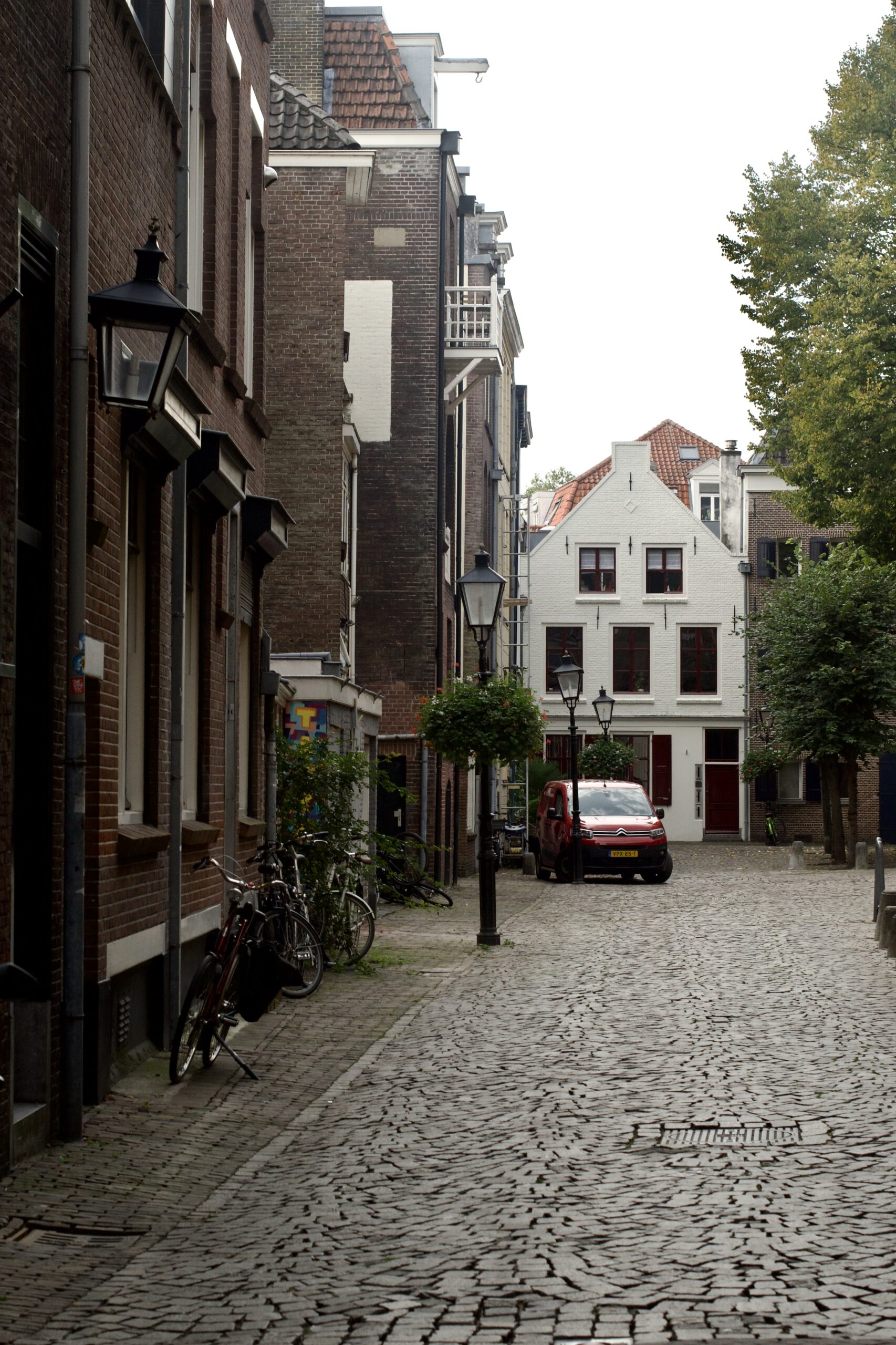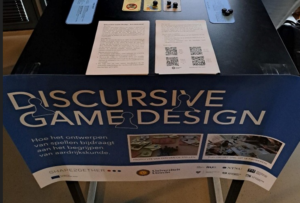
This article is the third and final part of a series of articles based on internship research within the Utrecht Center for Game Research conducted by Amy Lycklama as part of the completion of the MA New Media and Digital Culture.
The first part of the series, which contextualizes and asks the question: “Is there a specific Dutch identity to game research in the Netherlands or at the UU?” can be found here. The second part of the series, which justifies and explains the approach, can be found here. This final part explores the results of the interviews for main themes to answer the question posed in part one.
Introduction
Through discussing themes of Dutchness, Applied versus Theoretical, and Digital versus Analogue, we get an image of whether or not there is such a thing as a Dutch game research identity, as well as an insight into how the field might continue to grow, change, and adapt in the future. These themes together each form components of understanding the ways in which game research is engaged with academically in the Netherlands. In the interviews these thematic commonalities emerged. Highlighting both the similarities and differences between researchers offers an insight into the ways in which the research identity has been self-constructed at the UU.
Dutchness
I started each interview by asking the participants whether they felt there was such a thing as Dutch game studies, i.e., if they felt there was something about the research surrounding games conducted in the Netherlands that set it apart uniquely from game research anywhere else. It clearly proved difficult for each interviewee to specifically claim any part of the game research discourse as uniquely Dutch. Op de Beke made the interesting observation that “there is a distinction between North American game studies and European game studies” rather than a distinction between Dutch game studies and game research conducted in the rest of Europe. Kamp, while ultimately uncertain whether there was something to be claimed as uniquely Dutch did highlight the topic from his perspective:
I would be able to tell you a lot more about it if your question was about a Dutch Musicology. However, looking from the outside in, essentially, I would raise the question if we can speak of a discipline at all. Is there more than just a discourse here?”
Michiel Kamp
Bakkes spoke of an anecdotal experience at a conference in San Francisco, saying
“there might be a few trends out there and for some reason the Dutch have often focussed on applied games and serious games research. Somehow that’s what many Dutch people do, at least from my perspective”
Sander Bakkes
This is something that is also reflected in the industry’s focus on serious and applied games (see the Dutch Games Monitor 2022 authored by van Grinsven & Manshanden, 2024). If indeed this is also true for Dutch game research, the reasons for this could be manifold. However, Mäyrä et al. do get at a possibly explanation when they state that “currently, research into games in The Netherlands and Belgium is practiced by educational scientists, social scientists and media psychologists as well as game scholars coming from the humanities” (Mäyrä et al. 2013, p. 4).
Applied vs Theoretical
There are of course, many ways in which to approach games, from practical and applied to theoretical. Furthermore, games are approached from within different schools of thought, from humanities to the hard sciences. However, as Deterding points out, ranking programs that deal with the research of games is often times still done in regard to the practical development of the medium (Deterding, 2017, p. 526). In speaking with Kamp, he pointed out that different skills are honed by different educational approaches, as reflected within the Dutch education system. A practical approach teaches people how to engage with the functioning details of a game, whereas theory allows for the exploration of the relationality of the effects. Both have their specific mertis. As Kamp says:
“Knowing how people listen differently to sounds versus music or to different types of music or different sounds and different related context, is also a very worthwhile question to pursue.”
Michiel Kamp
Or, as Bakkes explains:
“research at applied universities is often maybe a bit more in collaboration with companies or partners that might be interested for diverse reasons” where in contrast the research done at universities there “does seem to offer some more opportunities to investigate and reflect on games from a researchers or a group’s own motivation, interest, or instincts. It offers room to say, ‘hey, there might be something interesting going on here. Let’s investigate that because this is what we want to do regardless of a company’s interest’”.
Sander Bakkes
A school of applied sciences offers the practical approaches towards game studies, the route that produces tangible (and therefor playable) results most often. And, according to Kamp: “I think game development as it’s taught at the HKU is appreciated more by outsiders than game studies is.”
Digital vs Analogue
Another point that was brought up in the interviews was the ways in which the field of game research makes a distinction between the study of digital and analogue games. Of course, the field originates from research of play at a grander scale (Mäyrä et al. 2013, p. 3). However, as pointed out by Laura op de Beke, the field as it exists in this moment has “significant blind spots in the study of analogue games.” Since the popularization of digital games, the focus of game research has been placed on the role that digital games play in society and culture, however more recently, possibly with the resurgence of analogue games that could well have something to do with COVID-19 as pointed out by Sander Bakkes, research interests have been turning to the analogue space more and more. In speaking with op de Beke, she points out how the field, at least from a cultural perspective, is shifting towards “games and plays in more general terms” something reflected in the structuring of the games and play track of NMDC at the UU.
This consideration of game research beyond the digital is one that is useful to keep in mind as the field of game research continues to develop, and play becomes something increasingly integral to our learning. The emphasis on analogue games and a broader understanding of play, is something that came up in two of the three interviews, especially when I asked what dreams the interviewees had for future research. Both op de Beke and Bakkes spoke of wanting to focus on analysing analogue games, though each approaching the topic from their own perspective. As op de Beke put it:
“What I would really like is for theatre and performance scholars and games scholars to come together because I think a lot of game and play penomena can be understood as performance.”
Laura op de Beke
This highlights the complex and far more extensive application of the concept of play beyond digital games. The intricacies of play apply to many areas, from theatre to film to music, to an increased gamification of our everyday lives. As stated by Chess and Consalvo, game research has gone on to apply to spaces well beyond games, integrating into different modes of production with the expansion of convergence (Chess & Consalvo, 2021, p. 160).
Conclusion
Game research, as stated at the beginning of this paper, is a complex and far-reaching field. Making any sweeping or grand statements that encompass or reflect all possibilities or representations of the field would not do the breadth of possibility justice, so that is not something I will try to do. However, while we cannot ever accurately characterize or encompass each expression of self-identity within the field, highlighting the thematic patterns I saw in my interviews regarding the ideas surrounding the existence of a specifically Dutch identity, distinctions and collaborations between theoretical and practical approaches, and the dichotomy between digital or analogue games (as well as where those of course also intersect) showcase that there are commonalities to be found amongst different approaches to the broader field.
Game research as it exists today is, all things considered, still a young research field. There is much we do not yet know, and much we still get to decide. Stating now what the field will look like in another decade or two is nigh impossible. The last 20 years have shown tremendous change in the field, so who knows what change and growth another 20 years might bring.
Final words
It remains imperative to remember that these conclusions can only reflect a small portion of the ideas present in game research. A broad and diverse field offers the chance at intersectional research and collaboration, but it also fosters diverse and varied experiences and opinions at such a scale that three interviews can never accurately reflect more than a small fraction of the themes, thoughts, and possibilities. However, these sorts of conversations offer an insight into the culture present within game research as experienced by at least a portion of those employed at the UU and showcases the great potential for growth the field has.
Perhaps, while it is unlikely that there is to be a Dutch sub-identity within the field, conducting more research in this vein would allow for a better mapping of the diversity of the field of game research and scholarship. Exploring this further would possibly also shine a new light onto our understanding of the games industry at large, helping bring to light the ways in which prospective new hires might take to get there, and how the nature of the field of game research is or is not reflected within the industry it examines. Additionally interviewing more people, both within the UU, and beyond as well, would allow for the continuation of this discussion and encourage further thinking about what game research currently entails, as well as what it could possibly be in the future.
In future research, it would be interesting to see if similar themes and frames appear when discussing these topics with game scholars from other schools, both within Europe and the Netherlands, as well as outside of Europe. Additionally, it would be interesting to see if those working more closely with schools of Applied Science rather than Universities espoused different ideas as well.
Bibliography
- Chess, Shira, and Mia Consalvo. 2022. “‘The Future of Media Studies Is Game Studies.’” Critical Studies in Media Communication 39 (3): 159–64. doi:10.1080/15295036.2022.2075025.
- Deterding, Sebastian. 2016. “The Pyrrhic Victory of Game Studies.” Games and Culture 12 (6): 521–43. doi:10.1177/1555412016665067.
- van Grinsven, Christel, and Walter Manshanden. 2024. “Games Monitor 2022.” Dutch Game Garden. Dutch Game Garden. https://www.dutchgamegarden.nl/games-monitor-3/.
- Mäyrä, Frans, Jan van Looy, and Thorsten Quandt. 2013. “Disciplinary Identity of Game Scholars: An Outline.” Proceedings of DiGRA 2013: DeFragging Game Studies., 1–16.
This article was written as part 3 of a 3 part series of articles based off of the Internship research conducted by Amy Lycklama as part of the completion of an MA in New Media and Digital Culture at Utrecht University (Article 1 [HERE] and Article 2 [HERE])


